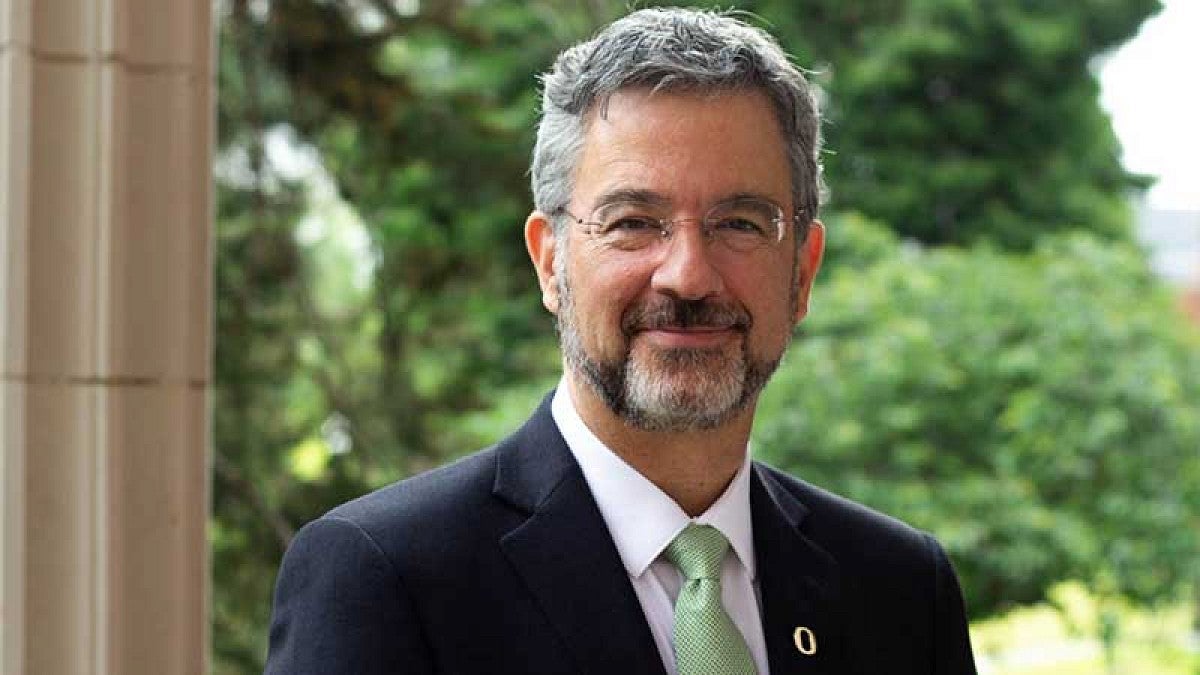The University of Oregon will continue in-person classes winter term, thanks to a successful multilayered approach that produced very high vaccination rates against COVID-19, a low-risk campus environment and a robust testing program.
Provost and Senior Vice President Patrick Phillips, in a message to faculty members, staff and students, stated that the UO made the decision to begin winter term with in-person instruction based on a number of factors. More than 95 percent of the campus community is vaccinated, which, along with existing safety measures, made campus a low-risk setting, he wrote. He also noted that to date no cases of classroom-based transmission of COVID-19 have been documented.
That’s important, Phillips said, because the UO’s earlier remote learning program, which provided a safe and high-quality substitute for classroom learning, left too many students facing other difficulties.
“Last year, due to the incredible efforts of our faculty, staff, and administrators, the university was able to mount a high-quality, remote academic program that served the needs of our students,” he wrote. “It also became clear that a significant number of students did not thrive and have encountered educational and emotional setbacks caused by the pandemic, setbacks that could be reduced by limiting the isolation associated with remote learning.”
Phillips noted that while universities across the country are taking different approaches to winter term based on local conditions, both Oregon State University and Portland State University also are continuing in-person classes for winter term. Those two, along with the UO, have the three highest university enrollments in Oregon.
As part of the ongoing plan to keep students on campus, the UO is now requiring all members of the campus community to receive a COVID-19 booster shot. Faculty members, staff and students must get the shot by Jan. 31 or within 30 days of becoming eligible.
Proof of the booster shot must be uploaded using a process similar to the one used for the vaccination requirement. Specific information for providing proof will be shared with students and employees early in winter term.
As with the existing vaccination requirements, the UO will continue to recognize both medical and nonmedical exemptions to the booster shot requirement in accordance with state law.
Phillips said the university remains prepared to manage potential disruptions caused by exposure to the virus, including the new omicron variant, using the containment plan for classes and exposure guidance for students and employees. Also, policies and procedures are in place if instructors are unable to teach in person due to illness or other reasons related to COVID-19.
Phillips also emphasized that the university is prepared to pivot and make any necessary changes in its programs and policies that the public health situation requires.


